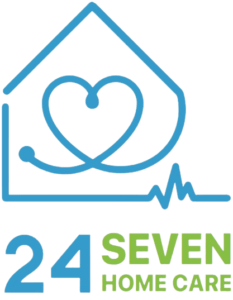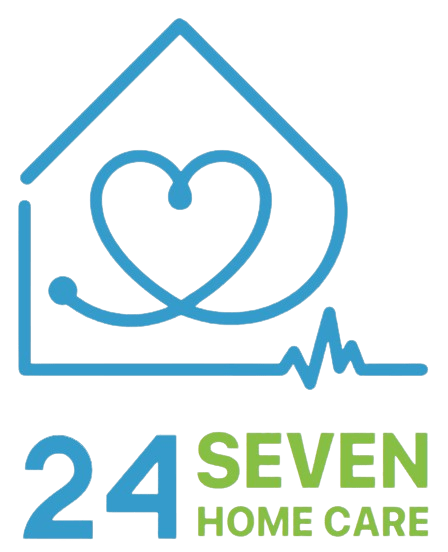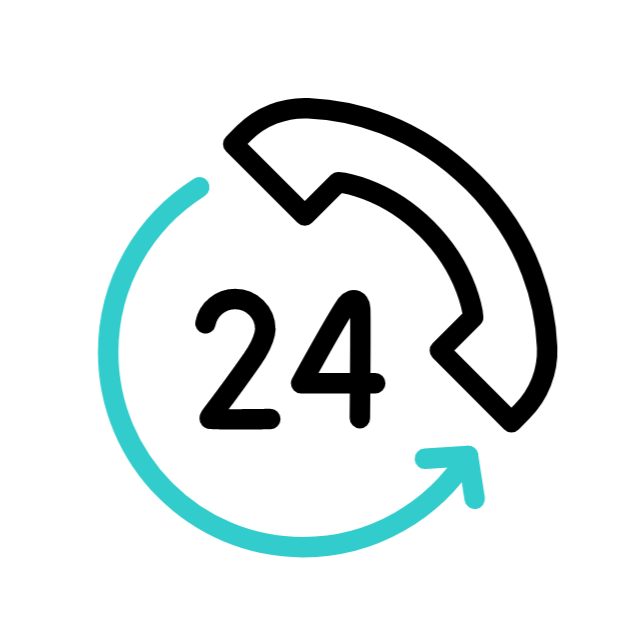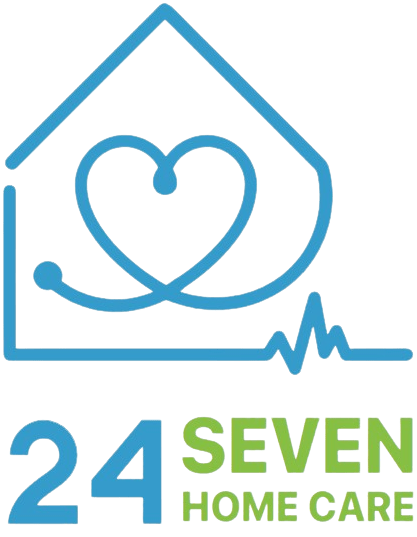Managing Cholesterol at Home with 24 Seven Home Care: Your Comprehensive Guide
Table of Contents
Controlling cholesterol levels is essential for preserving good health. Elevated cholesterol can heighten the likelihood of developing heart-related diseases, strokes, and various other issues linked to the cardiovascular system.
Although medications from healthcare professionals are frequently necessary, incorporating certain lifestyle modifications and home-based care practices can aid in enhancing the effectiveness of medical treatments. This detailed handbook will delve into methods for efficiently managing your cholesterol from the comfort of your home, with assistance from 24 Seven Home Care.
Understanding Cholesterol
Before we explore how to manage cholesterol, it’s crucial to comprehend the nature of cholesterol and its significance. Cholesterol is a waxy substance similar to fat, present in your body’s cells and the food you consume. While your body requires cholesterol to construct healthy cells, an excess of it in your bloodstream can lead to detrimental effects.
Cholesterol travels through your bloodstream attached to two types of carriers: low-density lipoprotein (LDL) and high-density lipoprotein (HDL). LDL cholesterol is commonly known as “bad” cholesterol because it tends to accumulate along the artery walls, creating plaque that can restrict and obstruct blood circulation. Conversely, HDL cholesterol is dubbed “good” cholesterol as it assists in the removal of LDL cholesterol from your bloodstream.
The Role of Diet in Cholesterol Management
An unhealthy diet ranks high among the primary factors leading to elevated cholesterol levels. Alterations in your diet can greatly influence these levels. 24 Seven Home Care is here to support you in devising and preparing meals that are beneficial for your heart and help in maintaining optimal cholesterol. Below are some dietary recommendations for cholesterol management:
Reduce Saturated Fat:
Consuming saturated fats, which are present in foods such as red meat, dairy products with full fat, and certain oils, may lead to an increase in LDL cholesterol levels. It is advisable to switch out saturated fats for better alternatives, including olive oil, canola oil, and avocados.
Increase Fiber Intake:
Soluble fiber can help lower LDL cholesterol. Foods rich in soluble fiber include oats, beans, lentils, fruits, and vegetables. A caregiver from 24 Seven Home Care can help incorporate these foods into your daily meals.
Choose Lean Proteins:
Opt for lean sources of protein such as poultry, fish, and plant-based proteins like tofu and legumes. These choices are lower in saturated fat compared to red meat.
Include Omega-3 Fatty Acids:
Omega-3 fatty acids, found in fatty fish like salmon and mackerel, can help lower LDL cholesterol. A caregiver can help you include these heart-healthy foods in your diet.
Limit Trans Fats:
Trans fats are often found in processed and fried foods. These fats can raise LDL cholesterol levels. Your caregiver can assist you in avoiding foods containing trans fats.
Regular Exercise and Physical Activity
Engaging in physical activities is a key factor in controlling your cholesterol levels. Regular workouts can assist in increasing your HDL cholesterol (often to as the “good” cholesterol) while your LDL cholesterol (commonly known as the “bad cholesterol). 24 Seven Home Care provides assistance in maintaining an active lifestyle, even within the comfort of your own home. Below are several strategies to seamlessly integrate exercise into your everyday life:
Aerobic Exercise:
Activities like brisk walking, cycling, and swimming can help improve cardiovascular health and lower cholesterol levels.
Strength Training:
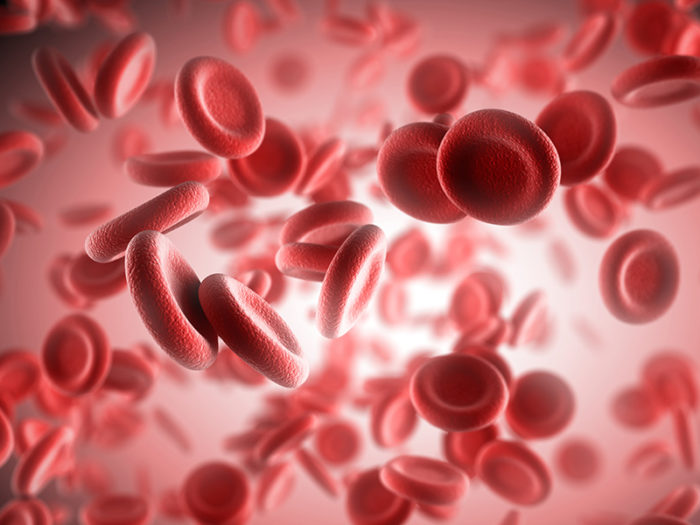
Building muscle through resistance exercises can also contribute to better cholesterol management. Your caregiver can assist you with strength training exercises appropriate for your fitness level.
Flexibility and Balance:
Stretching and balance exercises can enhance overall physical well-being, making daily activities easier and more enjoyable.
Stress Management
Chronic stress can contribute to high cholesterol levels and increase the risk of heart disease. 24 Seven Home Care recognizes the importance of stress management in cholesterol management. Here are some stress-reduction techniques you can explore with the support of a caregiver:
Mindfulness Meditation:
Mindfulness exercises can help reduce stress and improve emotional well-being.
Yoga and Tai Chi:
These practices combine physical activity with relaxation techniques, making them excellent choices for stress management.
Breathing Exercises:
Deep breathing exercises can help calm the nervous system and reduce stress levels.
Medication Management
In certain situations, it may be necessary to use medication prescribed by a healthcare professional to control cholesterol effectively. Assistance with managing these medications can be provided by a caregiver from 24 Seven Home Care, who can ensure adherence to the prescribed treatment and offer reminders for when it’s time to refill prescriptions or attend doctor.
Monitoring Cholesterol Levels
Consistently checking your cholesterol levels is vital for evaluating how well your cholesterol control strategy is working. 24 Seven Home Care provides support in monitoring your cholesterol by helping with scheduling appointments, offering transportation services to medical facilities, and facilitating interactions with medical professionals.
Lifestyle Modifications
Aside from diet, exercise, stress management, and medication, there are additional lifestyle modifications you can implement with the assistance of 24 Seven Home Care to manage cholesterol:
Smoking Cessation:
If you smoke, quitting is one of the most significant steps you can take to improve your cardiovascular health. A caregiver can provide support and encouragement throughout the quitting process.
Alcohol Moderation:
Limiting alcohol intake can also help manage cholesterol levels. Your caregiver can assist you in making healthier beverage choices.
Weight Management:
Achieving and maintaining a healthy weight is crucial for managing cholesterol. A caregiver can help you create a weight management plan that includes healthy eating and exercise.
Certainly, let's delve deeper into each aspect of cholesterol management with 24 Seven Home Care, providing a more comprehensive understanding of how caregivers can assist you in achieving and maintaining healthy cholesterol levels.
Understanding Cholesterol in Depth
Previously pointed out, cholesterol is an essential fatty material required for building cell membranes, creating hormones, and producing vitamin D. This substance is manufactured in the liver and can also be derived from the foods people consume. It is crucial, when talking about cholesterol control, to know the difference between LDL (low-density lipoprotein) and HDL (high-density lipoprotein) cholesterol.
LDL cholesterol is often labeled as the “bad” cholesterol because it tends to accumulate in the arteries, which can lead to the formation of plaque and, eventually, heart disease. Conversely, HDL cholesterol is thought to be the “good” cholesterol since it assists in transporting LDL cholesterol away from the bloodstream.
Customized Dietary Plans
At 24 Seven Home Care, we understand how critical it is to have a diet plan customized to individual health needs, especially for cholesterol management. Our team collaborates with professional dietitians to devise nutrition plans that not only meet your unique health requirements but also cater to your taste preferences. Here’s how we’re here to support you:
Meal Preparation:
Our caregivers can prepare heart-healthy meals that adhere to dietary guidelines. This includes selecting lean protein sources, incorporating fiber-rich foods, and limiting saturated fats and trans fats.
Grocery Shopping:
We can help with grocery shopping, ensuring that you have the right ingredients on hand for your cholesterol-friendly meals. We’ll assist you in reading food labels to identify products low in saturated and trans fats.
Portion Control:
Maintaining a healthy weight is closely linked to cholesterol management. Our caregivers can help with portion control to ensure you’re not overeating, which can lead to weight gain and higher cholesterol levels.
Hydration:
Staying hydrated is crucial for overall health. Proper hydration can help regulate metabolism and support your body’s natural processes for managing cholesterol.
Exercise and Physical Activity
Regular physical activity is a cornerstone of cholesterol management. 24 Seven Home Care promotes physical fitness by offering a range of activities tailored to your abilities and preferences:
Home Exercise Programs:
Our caregivers can collaborate with physical therapists to design exercise routines that suit your fitness level and health goals. These routines can include aerobic exercises, strength training, and flexibility exercises.
Outdoor Activities:
When appropriate, we can accompany you on outdoor walks, ensuring you get fresh air and exercise safely. Regular walks can help improve cardiovascular health and manage cholesterol.
Monitoring Vital Signs:
Our caregivers can track your vital signs, such as blood pressure and heart rate, before and after exercise to ensure your safety and make necessary adjustments to your routine.
Stress Management Techniques
Chronic stress can contribute to elevated cholesterol levels and heart disease risk. 24 Seven Home Care offers various stress management techniques, such as:
Mindfulness and Relaxation:
Caregivers can guide you through mindfulness meditation and relaxation exercises to reduce stress and promote emotional well-being.
Engaging Hobbies:
Pursuing hobbies and interests you enjoy can be a great stress reliever. Whether it’s reading, painting, gardening, or music, our caregivers can help you engage in activities that bring you joy.
Social Interaction:
Maintaining social connections is essential for mental and emotional health. We can facilitate social interactions by organizing visits or virtual meetings with friends and family.
Medication Management
In some cases, medication prescribed by your healthcare provider is necessary to manage cholesterol effectively. Our caregivers can assist with medication management by:
Medication Reminders:
We provide reminders for medication doses and help you adhere to your prescribed schedule.
Tracking Side Effects:
If you experience any side effects from cholesterol-lowering medications, our caregivers can monitor and report them to your healthcare provider for adjustments.
Prescription Refills:
We ensure you have an adequate supply of medications by tracking refills and coordinating with pharmacies.
Monitoring Cholesterol Levels
Regular monitoring of cholesterol levels is crucial to assess the effectiveness of your cholesterol management plan. Our caregivers can facilitate this by:
Scheduling Appointments:
We assist with setting up appointments with your healthcare provider or arranging transportation to the clinic or lab for blood tests.
Communication with Healthcare Providers:
Our caregivers can communicate with your healthcare team, ensuring they have access to your latest test results and can make informed decisions about your care.
Lifestyle Modifications and Support
24 Seven Home Care recognizes that managing cholesterol is not just about diet and exercise but involves several lifestyle modifications:
Smoking Cessation:
If you’re a smoker, quitting is a high-priority goal for cholesterol management. Our caregivers provide support and encouragement to help you quit smoking.
Alcohol Moderation:
We can help you establish limits on alcohol consumption and provide information about the impact of alcohol on cholesterol levels.
Weight Management:
Achieving and maintaining a healthy weight is crucial for cholesterol management. Our caregivers can assist you in creating a personalized weight management plan that includes healthy eating and exercise.
Certainly, let's break down the expanded content to provide a clearer explanation of each section:
Understanding Cholesterol in Depth
Within this segment, the focus is placed on grasping the essence of cholesterol and its impact on your well-being. Cholesterol, a lipid substance present in the human body and certain dietary sources, plays a crucial role in numerous physiological processes. However, its elevation beyond normal levels poses health risks.
The differentiation between LDL (low-density lipoprotein), often termed as ‘bad’ cholesterol, and HDL (high-density lipoprotein), known as ‘good’ cholesterol, is underscored, along with their respective influences on cardiovascular health.
Customized Dietary Plans
This section highlights the crucial role of customized diet plans in managing cholesterol effectively. 24 Seven Home Care understands that nutritional needs vary from person to person, thus rejecting the ineffective one-size-fits-all strategy.
To accommodate individual dietary requirements, caregivers work in tandem with registered dietitians to devise personalized meal strategies. They offer support in meal prep, selecting groceries, managing servings, and ensuring adequate fluid intake, all vital components in controlling cholesterol levels.
Exercise and Physical Activity
Engaging in physical activities plays a vital role in the effective management of cholesterol levels. This segment outlines the support offered by caregivers at 24 Seven Home Care in achieving your fitness objectives. They are skilled in devising customized exercise plans tailored to your individual fitness needs and preferences, ensuring the inclusion of cardiovascular, strength-building, and flexibility exercises for a holistic fitness regimen. It also highlights the critical aspect of keeping an eye on vital signs to guarantee safety while exercising.
Stress Management Techniques
Prolonged stress is a factor that can raise cholesterol levels, thereby increasing the risk of heart diseases. This section underscores the stress-reduction strategies that caregivers can implement. It covers practicing mindfulness and relaxation techniques, participating in hobbies, and building social networks. These activities are crucial in alleviating stress and enhancing emotional health.
Medication Management
For certain individuals, managing cholesterol levels requires the aid of medications. The role of caregivers in managing these medications is indispensable. They ensure adherence to the treatment regimen by reminding patients about taking their medication, monitoring any adverse reactions, and helping with the renewal of prescriptions.
The support from caregivers in reminding patients to take their medications, observing any negative reactions, and aiding in getting prescription refills is invaluable.
Monitoring Cholesterol Levels
Continuously checking cholesterol levels is crucial for assessing the effectiveness of your cholesterol control strategy. This part provides details on the role of caregivers in aiding this procedure. They are responsible for setting up medical appointments, coordinating transportation to get blood tests done, and keeping in constant touch with your medical team to guarantee all vital data for your treatment is at hand.
Caregivers are tasked with arranging medical visits, ensuring transportation is available, and facilitating ongoing dialogue with your team of healthcare providers.
Lifestyle Modifications and Support
Managing cholesterol isn’t just about diet and exercise; it often necessitates changes in your way of life. This segment explores the ways in which caregivers support such lifestyle adjustments. They offer help with quitting smoking, guide you in moderating your alcohol intake, and encourage your efforts towards attaining and keeping a healthy body weight.
Cholesterol management is a multifaceted endeavor that requires lifestyle changes, proper medication management, and regular monitoring:
Leveraging the assistance provided by 24 Seven Home Care, you have the ability to employ various strategies effectively within the comfort of your own home. By engaging in a collaborative relationship with caregivers, it is possible to develop a cholesterol management regimen that is custom-tailored to meet your specific needs and personal preferences.
It’s important to remember that the journey to managing cholesterol is a continuous effort towards improving your overall health. With the appropriate support, attaining and sustaining optimal cholesterol levels is achievable, paving the way for a life that is both healthier and more joyful.
Effective cholesterol management requires a multifaceted approach that includes modifying your diet, increasing physical activity, reducing stress, utilizing medications when necessary, and making overall lifestyle changes. With the assistance of 24 Seven Home Care, you gain a committed ally in your journey towards managing your cholesterol.
Our caregiving team is dedicated to aiding you in implementing long-term lifestyle adjustments that support the maintenance of healthy cholesterol levels and enhance your general health. It’s important to recognize that managing cholesterol demands a persistent dedication to your well-being, but with appropriate guidance and support, it’s possible to reach and sustain ideal cholesterol levels, leading to a more joyful and healthier existence.
In summarizing the main points drawn from the article, the closing section underlines the essential fact that managing cholesterol requires a multi-dimensional and enduring dedication towards health improvement. It points out that through the backing of 24 Seven Home Care, it’s possible for individuals to adopt lasting lifestyle adjustments that help in maintaining optimal cholesterol levels and enhancing overall health.
This enriched content offers a thorough and all-encompassing guide for managing cholesterol within the comfort of home with help from 24-Seven Home Care. It showcases the different forms of assistance caregivers can provide to those on their path to managing their cholesterol effectively. This support covers a range of activities including meal planning, physical activities, managing stress, handling medication, and making overall lifestyle changes.
FAQs on Managing Cholesterol at Home with 24 Seven Home Care: Your Comprehensive Guide
What are the common causes of high cholesterol?
High cholesterol can be caused by several factors, including poor diet, lack of exercise, obesity, smoking, excessive alcohol consumption, and genetics. Diets high in saturated fats, trans fats, and cholesterol can raise cholesterol levels. Lack of physical activity can lead to weight gain, which can increase cholesterol levels. Smoking and excessive alcohol consumption can also negatively impact cholesterol levels. In some cases, high cholesterol can be inherited from family members.
How can 24 Seven Home Care help in managing cholesterol at home?
24 Seven Home Care provides comprehensive support to help manage cholesterol levels at home. This includes personalized care plans, regular monitoring of cholesterol levels, dietary and lifestyle guidance, and medication management. Caregivers can assist with preparing heart-healthy meals, encouraging and facilitating physical activity, and providing education on cholesterol management. They can also coordinate with healthcare providers to ensure that patients are following their prescribed treatment plans.
What dietary changes can help lower cholesterol levels?
To lower cholesterol levels, it is important to adopt a heart-healthy diet. This includes reducing the intake of saturated fats found in red meat and full-fat dairy products, eliminating trans fats found in many fried and commercially baked products, and increasing the consumption of omega-3 fatty acids found in fish, flaxseeds, and walnuts. Eating more soluble fiber, found in oats, beans, fruits, and vegetables, can also help lower cholesterol. Additionally, incorporating plant sterols and stanols, which are found in fortified foods, can be beneficial.
How does physical activity impact cholesterol levels?
Regular physical activity can help improve cholesterol levels by raising high-density lipoprotein (HDL) cholesterol, which is known as “good” cholesterol, and lowering low-density lipoprotein (LDL) cholesterol, known as “bad” cholesterol. Exercise helps to maintain a healthy weight, which can also contribute to lower cholesterol levels. Activities such as brisk walking, running, cycling, swimming, and strength training are effective in managing cholesterol. It is recommended to engage in at least 150 minutes of moderate-intensity exercise or 75 minutes of vigorous-intensity exercise each week.
What role do medications play in managing cholesterol?
Medications can play a crucial role in managing cholesterol levels, especially when lifestyle changes alone are not sufficient. Statins are the most commonly prescribed medications for lowering LDL cholesterol. Other medications include bile acid sequestrants, cholesterol absorption inhibitors, and PCSK9 inhibitors. It is important to take medications as prescribed by a healthcare provider and to have regular check-ups to monitor their effectiveness and any potential side effects. 24 Seven Home Care can assist with medication management, ensuring that patients take their medications correctly and on time.
How can stress management contribute to healthier cholesterol levels?
Chronic stress can negatively impact cholesterol levels by increasing the production of cholesterol in the liver and raising LDL cholesterol levels. Stress can also lead to unhealthy coping mechanisms, such as overeating, smoking, or excessive drinking, which can further elevate cholesterol levels. Effective stress management techniques include regular physical activity, mindfulness practices like meditation and yoga, adequate sleep, and engaging in hobbies and activities that bring joy and relaxation. 24 Seven Home Care can provide support in implementing stress management strategies, offering companionship, and encouraging participation in stress-reducing activities.
Get Better With 24 Seven Home Care
Healing & Wellness At Your Doorstep
+971 50 8988247/+971 800 24724
